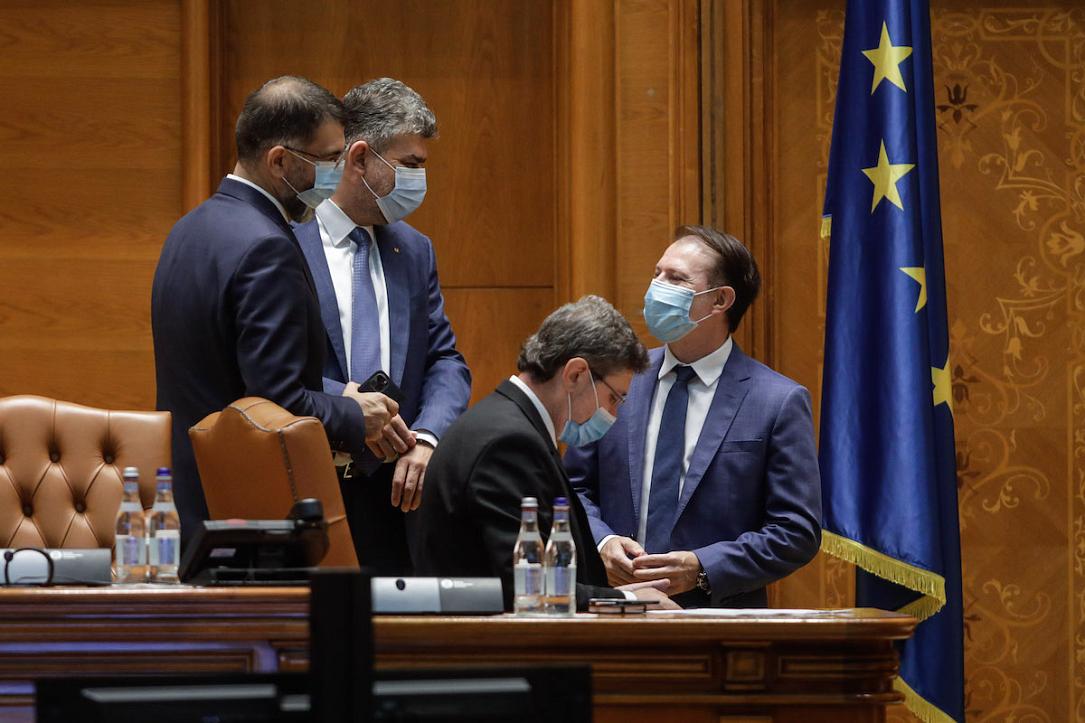Romania's Social Democrats bury reformists' no-confidence motion against Govt. to file "better one"



After heated debates in Parliament and a vague enough ruling of the Constitutional Court, the Romanian Government of prime minister Florin Citu will face on September 30 a second no-confidence motion scheduled for the final vote on October 5. This buys some time for PM Citu and supports expectations for a surprising last-minute solution provided by President Klaus Iohannis.
In the afternoon of September 28, the leading body of the Parliament decided to defer the vote on the first no-confidence motion filed by the reformist USR-PLUS (and co-signed by the radical AUR party). The motion, already presented in a joint sitting of the Chambers, had been declared valid by the Constitutional Court a couple of hours earlier.
At the same time, the Court admitted the constitutional conflict between Parliament and Government, which was notified by prime minister Florin Citu. This detail (irrelevant for the motion itself) opened the door for Social Democrats (PSD) to request the detailed reasoning of the Court before scheduling the vote on the reformists' motion. Nevertheless, the ruling clarifies that "the lawmakers should be given the chance to vote it," according to News.ro.
At the same time, PSD filed its own motion, which blames not only PM Citu and his Liberal party - but also their junior ruling partner, reformist USR-PLUS, for weak performance in office, according to Digi24. USR-PLUS still promised to vote for the Social Democrats' motion despite being directed against its own ministers as well.
Despite the considerable majority held by the parties pledging to support PSD's motion, it is still way too early to declare the end of the Executive headed by PM Citu.
The Social Democrats claim that their target is triggering early elections. But, politically, they would be better off in opposition - where they can trade their hidden support against various benefits.
Such political constructions involving rivals teaming up under the table are detrimental to good governance since the two major political forces focus on confronting each other. They also tend to eliminate smaller political players, against which the major ones (otherwise rival) join forces.
iulian@romania-insider.com
(Photo source: Inquam Photos/George Călin)